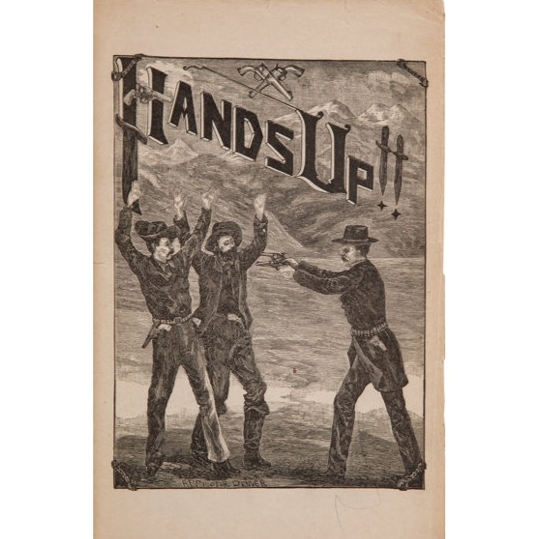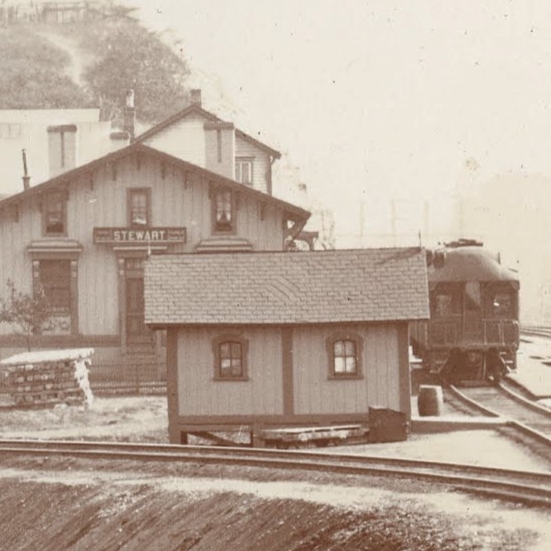Civil War veteran dies passing Stewart Station
Did a newspaper relish in the death of a disabled Civil War veteran based on the book he was reading? The topic of “banned books” has occupied news feeds in recent weeks when I happened upon a sad, but bizarre story from 1882 that occurred upon the Pennsylvania Railroad adjacent to Stewart Station.
On October 8, 1882, an express train travelled from Pittsburgh through Stewart Station when a “well-dressed and clean” man named George F. Helen took a pistol to his head and ended his own life. “The passengers were startled at the report of a pistol shot, and looking around saw a puff of smoke and a pistol drop from a man…” (Pittsburgh Daily Post Oct 9, 1882).
George F. Helen, a disabled veteran who lost his right leg at the knee from injuries sustained during the Battle of Gettysburg, once served with Company B, 114th Regiment Pennsylvania Volunteers. At the time of his death, he was travelling east from Glenwood, Nebraska to his hometown of Philadelphia, leaving the company of his brother William, where the brothers had sold a sheep ranch just weeks earlier. His brother William received word of George’s death by telegram. The St Paul Phonograph newspaper learned from William Helen that his brother had been suffering since last March and the “wounded stump of Mr. Helen’s limb burst out in sores in four places and from that time he had not seemed right.” William told the reporter that his brother George left Nebraska on October 5th with the intention of getting a new wooden limb. He also told the reporter that George was a bachelor and very well esteemed by his acquaintances.
The coroner in Greensburg opened an inquest after the incident and a Pittsburgh newspaper reported that Mr. Helen was “neatly attired” carried a small bundle of clothing, cash and vouchers, army discharge papers, and his last three-month pension warranty of $72 which had not yet been drawn. No mention of a book.
Now this is where I found the reporting absurd. The newspaper Butler Citizen (Butler, PA) reported on the story of Helen’s suicide, but showed favor for him ending his own life, not judging him based on the act itself, but for his choice of literature. The article reads, “At the time he performed the act he had in his hand a dime novel, entitled "Hands up!" the history of western crime, lured and gory, which he had just been reading. The occurrence is narrated here in order that we may commend the course of Mr. Helen. He has done his duty to himself and to society. To everyone who is addicted to blood-and-thunder literature we unhesitatingly say, go thou and do likewise. Do it promptly, and you will fill a long felt want beneath the subsoil of the cemetery, and maybe somebody will erect over you a tablet with a hand engraved thereon, the butt end pointing toward heaven.”
I came across the Butler article searching for Helen's obituary, hoping to locate his final resting place, but never expected to find such hatred for a man based on reading a crime novel. I'm still searching for Private George F. Helen’s final resting place. Message me if you can identify the cemetery where he is buried. Andrew Capets





